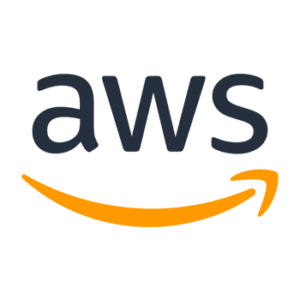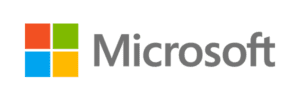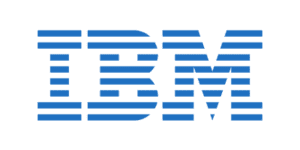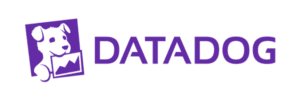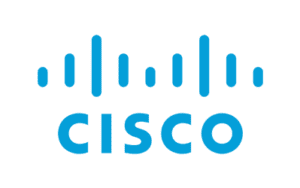IoT data analytics platforms are software tools that help businesses collect and analyze the data from their far-flung network of IoT (Internet of Things) devices. IoT networks collect vast amounts of data – from consumer spending patterns to traffic usage – and IoT data analytics platforms are essential in helping companies generate the insight needed for competitive advantage.
Indeed, the Internet of Things has become a vital part of modern technology with its ability to scale, learn, and connect. IoT business analytics helps companies keep up data from both the current system and historic trends.
IoT analytics platforms have become necessary in all industries to improve their organization’s market strategy. From suppliers like AWS to Oracle, the leading IoT analytics vendors in the list of leaders below are helping companies grow.
For more information, also see: What is Big Data Analysis
Table of Contents
- IoT Analytics Platforms: Comparison Chart
- Top IoT Analytics Platforms
- AWS IoT Analytics: Best for Automation
- Microsoft Azure IoT: Best for All Industries
- IBM Watson IoT Platform Best for Flexibility
- ThingSpeak: Best for Beginners
- Oracle IoT Cloud Services: Best for Cloud Services
- Datadog: Best for Monitoring
- Cisco IoT: Best for Industrial Businesses
- IoT Analytics Key Feature
- How to Choose an IoT Analytics Platform
- FAQ: IoT Analytics Platforms
- Bottom Line: Top IoT Analytics Platforms
IoT Analytic Platform Comparison Table
| Analytic Platforms | Pros | Cons | Pricing |
| AWS IoT Analytics |
-Scalable -Predictive analysis |
-Lack of guidelines | Request a quote or start free. |
| Microsoft Azure IoT |
-Secure communication -Easy integration |
-Expensive | Request a quote or start free. |
| IBM Watson IoT Platform |
-Centralized dashboard -Flexible |
-Needs better training | Free trial or contact sales. |
| ThingSpeak |
-Event alerts -Instant visualizations |
-Limited support -Not for experts |
Pricing for Standard, Academic, Student, and home online. |
| Oracle IoT Cloud Service |
-Simple deployment -Documentation |
-Needs more integration | Free trial or contact sales. |
| Datadog |
-Great network mapping -Metric history |
-Not for beginners | Start for free or contact sales. |
| Cisco IoT |
-Strong visibility -Improves uptime |
-Needs more language tools | Request a quote. |
For more information, also see: Top Data Analytics Tools
Top 7 IoT Analytics Platforms
There are many excellent IoT analytics platforms, but these are the top seven platforms that all have unique and helpful features for businesses in need of IoT analytics tools:
AWS IoT Analytics: Best For Automation
Amazon Web Services (AWS) provides IoT services and solutions to connect and manage the company’s devices. AWS IoT Analytics helps companies analyze a large amount of IoT data. As a managed service that provides advanced data analysis for IoT devices, it will help companies collect, process, and store data.
AWS IoT Analytics uses automation to help companies process the difficult steps that are required for IoT devices. Companies are then able to then analyze IoT data by running queries to help create, copy, delete, or change data.
Pricing:
AWS gives customers the ability to start for free, request a quote, or use their pricing calculator based on what the company wants.
Features:
- Only Collects Data A Company Wants: AWS IoT validates data to be defined by a company’s needs including specific ways to process, transform, and improve data.
- Different Processes: AWS IoT Analytics offers different processes including the ability to filter, transform, improve, and reprocess what a company needs.
- Time-Series Analysis: AWS IoT Analytics helps a company see how their devices are changing over time and pays attention to any problems to fix them.
Pros:
- Easy to deploy and configure.
- Great Predictive analysis.
- Scalable.
Cons:
- Expensive tool.
- Lack of guidelines.
Microsoft Azure IoT: Best For All Industries
Microsoft Azure IoT works to develop industry cloud solutions that vary for each customer, adding a platform with edge-to-cloud technologies. Their IoT solution includes security, privacy, and compliance built-in. It also has the ability to connect, monitor, automate, build, deploy, and update any models and devices.
Pricing:
Similar to AWS, Microsoft Azure gives customers the ability to start for free, request a quote, or use their pricing calculator based on what the company wants.
Features:
- Three IoT Products: Microsoft Azure IoT offers three tools to cover all IoT needs. This includes Azure IoT Hub, Azure Digital Twins, and Azure IoT Central.
- Single Control Plane: Azure IoT organizes all IoT devices and applications into a single view to help a company automate, monitor, and troubleshoot.
- Serves Multiple Industries: Azure IoT has a presence in many industries, including manufacturing, energy, healthcare, retail, and transportation.
Pros:
- Easy integration.
- Secured communication on devices.
- Positive scalability.
Cons:
- Expensive.
- Documentation can be confusing.
For more on IoT: 5 Internet of Things (IoT) Edge Computing Trends
IBM Watson IoT Platform: Best For Flexibility
IBM Watson IoT Platform is a top IoT platform due to its flexibility in working with a company’s needs. Their Analytics Service creates calculations on the data in the system as often as a company would like, typically every five minutes. If the automated functions do not match all requirements, a company has the ability to build their own custom code, making the IBM Watson IoT Platform responsive to company needs.
Pricing:
IBM Watson IoT Platform offers two ways to receive pricing. A company can get started for free or book a meeting with sales representatives for specific pricing.
Features:
- MQTT and HTTP Connection: IBM IoT tools allow a customer to connect to the IBM cloud by using MQTT and HTTP connections.
- Real-Time APIs: IBM allows customers to connect their applications to secure APIs connected to data feeds in their devices.
- Helpful Analytics: IBM IoT tools and IBM Cloud can create analytic applications for all of the company’s own servers.
Pros:
- Great centralized dashboard.
- Easy integration.
- Flexible for customers.
Cons:
- Needs better training.
ThingSpeak: Best For Beginners
ThingSpeak is an IoT analytics platform that allows customers to form a cluster or group of data, visualize, and analyze live data in the cloud. ThingSpeak provides automatic visualizations of data posted on a company’s devices to ThingSpeak. It also allows customers to perform online analysis and processing of the data as it comes in. It can also be used for IoT systems that require analytics.
Pricing:
Pricing for ThingSpeak can be found on their pricing page with categories such as Standard, Academic, Student, and Home.
Features:
- Communication On Different Platforms: ThingSpeak will automatically use data to communicate with third-party service providers.
- No Need For Servers Or Web Software: ThingSpeak allows customers to prototype and build IoT systems without any new servers or web software.
- MATLAB: ThingSpeak will often use MATLAB to help a customer understand their IoT data.
Pros:
- Instant visualizations.
- Event alerts.
- Easy integration.
Cons:
- Limited support.
- Not built for experts.
Oracle IoT Cloud Service: Best For Cloud Service
Oracle Internet of Things (IoT) Cloud Service is a managed Platform as a Service (PaaS) which is a cloud-based tool that helps a company make better business decisions and strategies. Oracle IoT Cloud allows a company to connect their devices to the cloud, analyze their data from devices quickly, and integrate data with applications, web services, or with other Oracle Cloud Services.
Pricing:
Oracle Cloud has a pricing page that offers free tiers on some devices, and other ways to reach out to sales.
Features:
- Many Device Connection Options: Oracle IoT Cloud Service provides device connection options to make it simple to connect many kinds of devices, such as JavaScript, Java, Android, C POSIX, and iOS as well as REST APIs.
- Uses Predictive Analytics: Oracle IoT Cloud Service uses predictive analytics, so users can predict events and outcomes based on their data.
- Uses Forecasting: Oracle IoT Cloud Service offers users a look into their potential future trends based on their data.
Pros:
- Simple deployment.
- Thorough documentation.
- Helpful support.
Cons:
- Needs more integration.
For more on IoT in cloud: The IoT Cloud Market
Datadog: Best For Monitoring
Datadog’s IoT tool provides IoT monitoring from their customer’s devices and gives the ability to aggregate metrics. They also offer the ability to monitor IoT software performance, device hardware metrics, application logs, network performance data, and more. They aim to give companies the ability to have a comprehensive view of their devices and can troubleshoot particular regions of their systems.
Pricing:
Datadog offers the ability to start for free and a pricing page to see every product and solution Datadog offers.
Features:
- Alerting for IoT Devices: IoT operators build alerts that are triggered when a problem has sustained or widespread device failures, using ML algorithms.
- Analyze All IoT Data From Every Device: Datadog’s IoT tool analyzes all of the IoT devices and data to provide visibility and actionable notifications.
- Monitor Performance: Every device containing IoT data will be monitored to ensure that the system is working properly, and in a manner that works for the company unique needs.
Pros:
- Easy to look at metric history.
- Great network mapping.
- Helpful notifications.
Cons:
- Difficult for beginners.
- Needs better documentation.
Cisco IoT: Best For Industrial Businesses
Cisco IoT is a platform that provides IoT-based solutions based on exactly what a company needs. Their tool aims to make business tools smarter such as smart lighting, smart locks for security, self-regulating HVAC, and systems that adapt automatically. Cisco IoT seems to be aimed mostly at industrial businesses who need an IoT tool customized to their industry.
Pricing:
For pricing, go to the how to buy page, where a customer can request more information.
Features:
- Operational Resiliency: Cisco IoT platform can improve safety by reducing employee work with IoT automation. Cisco can also monitor, manage, and help with equipment and processes.
- Protection From Security Threats: Cisco IoT gives companies visibility in security measures in case they are detected in the system.
- Bridge Between IT and Operations: IT and operations within a company can get support from IoT solutions with any line of business.
Pros:
- Great network monitoring.
- Improves uptime in routers and connected devices.
- Strong visibility.
Cons:
- Needs more language tools.
IoT Key Features
When a company is searching for the right platform for their unique needs, it is important to keep in mind the five key features of IoT analytics that should be supplied by any platform:
Analytics
All of the IoT analytics platforms have analysis tools, but it is important to look for a platform that offers the style and level of analytics that fits best with its business. A highly specific fit with analyzing data is one of the most important parts of an IoT platform. Without it, IoT would not be as strong as a platform.
Connectivity
Connection is a vital feature for IoT platforms. Without a secure and well monitored connection to company devices, IoT can lose effectiveness. The platform should be able to connect to a company’s specific devices, so communication between company systems is always easy and efficient.
Security
Important company and customer data needs to be protected in all applications, but for IoT, it is necessary to have high amounts of security. With the amount of data that IoT applications hold, if security is breached, it can be a huge problem for all businesses. Most IoT platforms have security measures, but it is necessary to have strong security that interoperates with a given company’s infrastructure.
Intelligence
Emerging technologies such as artificial intelligence (AI) and machine learning (ML) should be included in IoT applications. Implementing these tools is now necessary, and as the technology grows, will become an ever larges part of all IoT platforms.
Scalability
As a company’s data grows, an IoT platform needs to be able to scale larger with it. It is essential for an IoT platform to monitor all data, new and old. Patterns within the system cannot be determined without all data being visible and included.
For more on security in IoT: Internet of Things (IoT) Security Market
How To Choose An IoT Analytics Platform
Businesses need a scalable, intelligent, connected, and secure analytics platform to monitor and mine company data. Choosing a platform may be based on industry, business size, or level of professionalism.
Here are questions to ask while deciding on an IoT analytics platform:
- What is the company budget?
- Which platform works best for the amount of company data?
- Does the platform integrate with current applications?
- How much automation and documentation does the platform need?
- What is best for the company’s industry?
Companies can expand their questions by reading reviews to see other companies’ experiences. Reading the summary of each platform will help make a decision easier for customers in need of an application as well.
For more information, also see: The Data Analytics Job Market
Frequently Asked Questions (FAQ)
-
What is IoT data analytics?
IoT data analytics is a tool that helps businesses collect and analyze their data.
-
What is the focus of the IoT analytics platform?
The platforms should focus on scalable, intelligent, connected, and secure analytics for an IoT network.
-
What are the top four types of IoT analytics?
Descriptive analytics, diagnostic analytics, predictive analysis, and prescriptive analytics.
Bottom Line: Top IoT Analytics Platforms
Many large technology companies have some sort of IoT application. The top providers create unique and highly powerful IoT analytics applications for businesses, based on size, industry, and professional levels.
As the IoT industry grows, the need for strong applications grows. The top seven providers listed here are suitable for many business needs.
For more information on IoT software: Best IoT Platforms & Software



